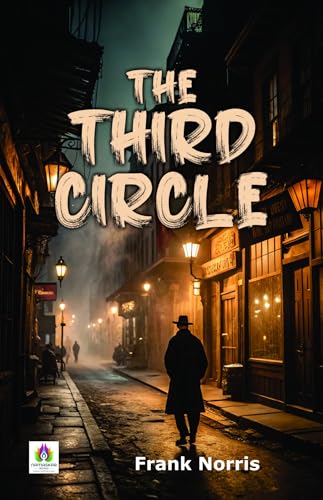
The Third Circle by Frank Norris is a powerful exploration of ambition, love, and the human condition, set against the backdrop of turn-of-the-century America. This classic novel is a shining example of how naturalism in fiction can beautifully illuminate the complexities of human desires and the often harsh realities of societal norms. Norris, a pioneer of literary realism, crafts a narrative that dives deep into the psyche of his characters, revealing their motivations, struggles, and the moral dilemmas they face as they navigate the intricate web of life. The story centers around the profound psychological conflict of its characters, particularly that of its compelling female protagonist, who finds herself torn between her passions and societal expectations. Through her journey, readers are offered a glimpse into the intricate layers of human desires and ambitions that dictate the actions and choices of the people around her. As she grapples with love, ambition, and the pursuit of happiness, the narrative unfolds with depth and emotional resonance, showcasing how the forces of fate can shape lives in unexpected ways. Norris’s keen observations reveal the societal critiques embedded within the story, presenting a lens through which readers can examine the complexities of social class struggles and the intricacies of personal relationships. The romantic relationships portrayed in the novel are both idealistic and flawed, adding layers to the character development and enhancing the moral dilemmas that unfold. As the characters make choices that define their trajectories, we witness the push and pull of ambition against the backdrop of societal expectations. The name “The Third Circle” is a metaphorical representation of the endless cycles of desire and disappointment, reflecting the ineffable struggle for meaning and fulfillment within an unforgiving society. The concept of the third circle emphasizes themes of fate and predestination, suggesting that our choices might be less free than they appear. This philosophical undercurrent adds depth to the plot, inviting readers to engage in a broader discussion about the influence of environment and society on individual destiny. This novel resonates greatly with modern readers, as it encapsulates timeless themes surrounding ambition and the what it means to be human. Readers will find themselves captivated by Norris' evocative prose and layered narratives, prompting them to reflect on their own desires and dilemmas. The themes of artistic expression that run throughout the book illustrate how art and creativity serve as an avenue of escape and self-exploration for the characters, enriching their lives even amidst despair. In conclusion, The Third Circle is an essential read that stands as a testament to Frank Norris' literary prowess and his timeless insights into human nature. His exploration of psychological conflict and the sociological implications of circumstances makes this novel a riveting experience that resonates with readers across generations. For those who appreciate literature that combines deep emotional undertones with critical societal analysis, Norris delivers a powerful narrative that will linger in the minds of readers long after they turn the final page.